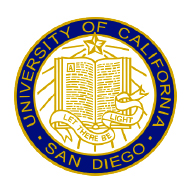At Fuel Freedom, we carefully consider the many complex issues related to our campaign to bring about fuel choice. We pore over arcane reports and mine databases for the latest information.
But considering the influence petroleum has over our lives, as well as the complexity of driving habits, national security, the economy and family budgets, there is a surprising lack of in-depth analysis related to the key issues. That’s why we partner with universities, think tanks and laboratories to conduct original research and publish peer-reviewed academic papers in a variety of fundamental areas.
We’ve awarded research grants to numerous institutions, including:
 |
Massachusetts Institute of TechnologyResearch engineer Leslie Bromberg and senior research scientist Daniel R. Cohn of the MIT Energy Initiative conducted tests comparing methanol and gasoline in vehicle engine performance. They found that “substantial improvement on fuel efficiency could be obtained in present [5-10 years old] vehicles by substituting methanol for gasoline.” The study, titled “Assessment of Higher Efficiency Options for Alcohol Fueled Vehicles,” was published Aug. 11, 2015. |
 |
UC San DiegoUCSD economics professor James D. Hamilton has studied closely the negative effects of high oil prices on jobs and the overall U.S. economy. In a paper commissioned by Fuel Freedom, titled “Economic Costs of America’s Dependence on Oil,” dated Aug. 28, 2012, Dr. Hamilton writes that “oil supply disruptions and price spikes were a contributing factor in a number of historical U.S. recessions, and there is a significant likelihood of repeating that experience within the next 5 years.” He also noted that between 1973 and 2011, U.S. reliance on foreign oil imports amounted to a “wealth transfer” of more than $11 trillion from the United States to oil-producing nations. |
 |
Leeds School of Business, University of Colorado BoulderResearch economist Miles K. Light presented this report, titled “Natural Gas Based Liquid Fuels: Potential Investment Opportunities in the United States,” at the North American Energy Summit, sponsored by Goldman Sachs, in New York in June 2014. The paper notes that nearly 78 million light-duty vehicles, about 32 percent of the U.S. fleet, could potentially use NG-based liquid fuels, “if prices were attractive.” The low price of natural gas compared with oil, the growing U.S. surplus, and new technologies to convert NG to ethanol or methanol, has created a “potential market for non-oil based liquid fuels.” |
 |
The Natural Resources Defense Council and TIAXThe NRDC, one of the nation’s most influential environmental-protection groups, along with consulting firm TIAX, examined the market opportunities and lifecycle environmental consequences of using alcohol fuels like ethanol and methanol compared with gasoline. The first study, titled “Technical Opportunities and Challenges to Reduce Gasoline Consumption from the In-Use LDV Fleet through Retrofit and Alternative Fuel Conversion Technologies” was published in October 2012. It assessed the feasibility of converting existing cars and trucks to run on multiple fuels. Among many findings, the study estimated that about 20 percent of U.S. vehicles are model year 2009 or newer, with at least 50 percent of their “useful lives remaining.” And “therefore might warrant retrofitting.” The second study was titled “Lifecycle Emissions Analysis for Converted In-Use Light-Duty Alcohol Fuel Vehicles,” and was published in March 2013. It used Argonne Lab’s GREET model to compare the estimated the well-to-wheel emissions of a typical vehicle using gasoline (both E0 and E10) and E85, M60, CNG and electricity. Among the many findings, methanol and ethanol could achieve improved fuel economy and reduced greenhouse-gas emissions compared with gasoline. |
 |
Hudson InstituteThis think tank, specializing in foreign affairs, defense and economics, is conducting an 18-month project to look at the shale and natural-gas revolution going on in the U.S., and how those new resources could reduce our dependence on petroleum. The project is scheduled to be published as a book-length work in early 2016, with a goal of making the issue a priority during the next presidential election. Visit Website |
 |
Resources for the FutureRFF, a respected nonpartisan think tank that conducts research on environmental and natural-resource issues, conducted a study titled “Cheaper Fuels for the Light-Duty Fleet: Opportunities and Barriers,” which was published in September 2013 and revised in January 2014. The study looked at the potential benefits of, and regulatory barriers to, replacing gasoline in light-duty trucks with natural-gas-based fuels, including liquid ethanol and methanol. The research found that certain NG-based fuels could yield “significant fuel cost savings … along with gains to national security and, possibly, some environmental benefits.” |
 |
mdj Research and Alternative Fuels AdvocatesMichael D. Jackson, president of mdj Research, and Peter F. Ward, the principal of Alternative Fuels Advocates, LLC, examined the potential of using methanol in light-duty vehicles. Their paper, titled “Demonstrating the Feasibility of Methanol Gasoline Blends to Reduce Petroleum Use in the United States,” was published in February 2013. They found significant “societal benefits” for methanol, including an attractive price point for consumers and lower GHG emissions. But there are many barriers to widespread acceptance, and the paper say states should conduct tests to gain EPA approval and clear the way for methanol blends to enter the market. |
 |
Carnegie Mellon UniversityA new project will examine fuels made from natural gas, and the implications of putting them in today’s existing vehicles. The study will specifically look at how much natural gas and natural-gas liquids lie within the Marcellus Shale in the eastern U.S., and what the well-to-wheel impacts of extracting the gas will have on health and GHG emissions. Visit Website |
 |
Fuel Freedom FoundationLeadership and staff have authored white papers and research reports of our own, to help educate the public. Below is a list of our work: |

